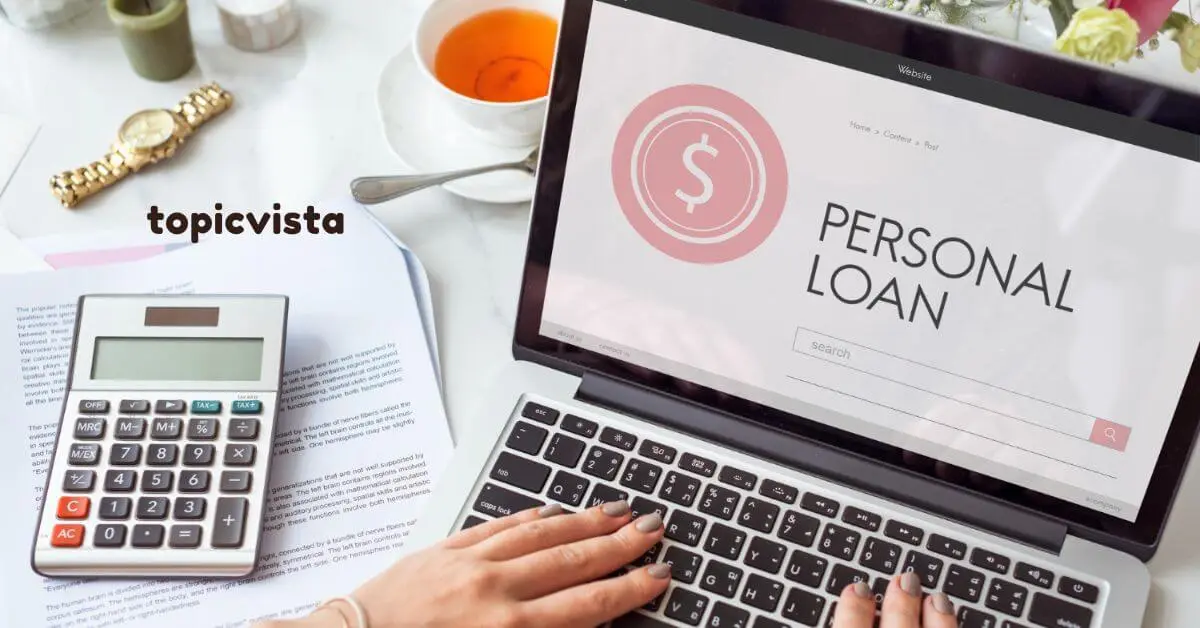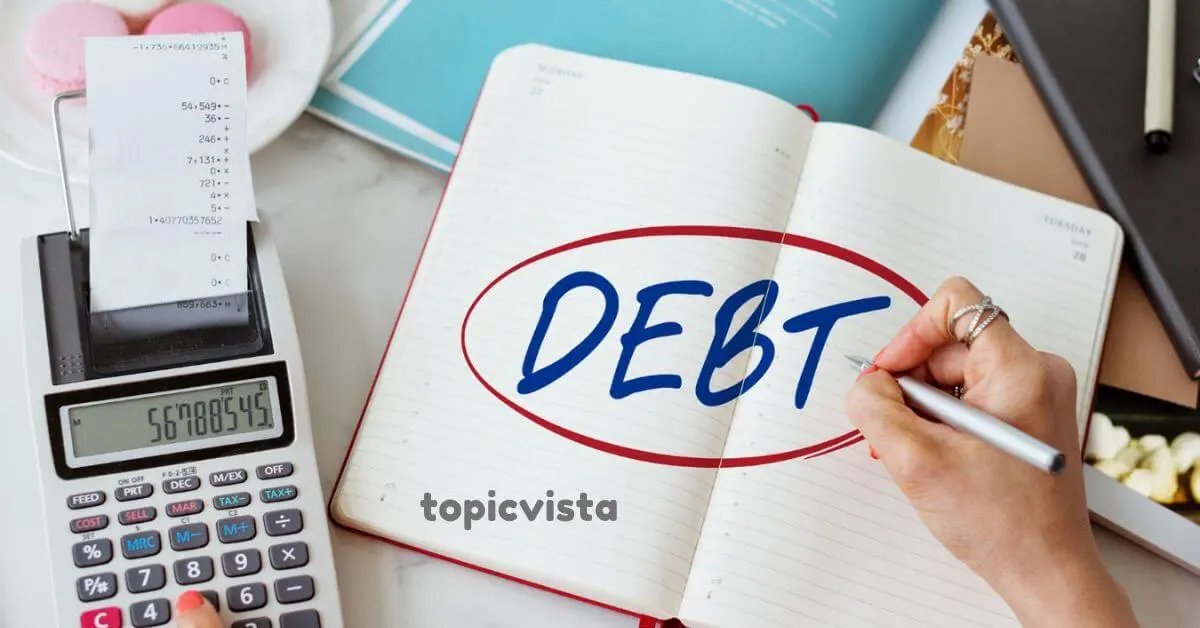Sometimes you need extra money to deal with unexpected expenses or emergencies. A personal loan can be a good solution, but what if your credit is not so good? Don’t worry; you still have some choices.
This article will show you how to get a personal loan with bad credit, what the best bad credit loans are, and how to improve your credit score. Read on to learn more about how to find the right loan for your situation.
Bad Credit Personal Loan
1. What is a credit score?
A credit score is a number that shows how likely you are to pay back your debts on time. It is based on your credit history, which includes information like how many credit accounts you have, how much you owe, how often you pay your bills, and whether you have any negative marks like late payments, collections, or bankruptcy.
Lenders use your credit score to decide whether to approve you for personal loans, credit cards, mortgages, and other types of credit. They also use it to set your credit’s interest rates and terms.
There are different types of credit scores, but the most common one is the FICO® Score, which ranges from 300 to 850. The higher your score, the better your credit. Generally, a score of 670 or above is considered good, while a score of 800 or above is considered excellent.
A score of 580 or below is considered poor and may make it harder to get approved for credit or get favorable rates.
You can check your credit score for free with Experian, one of the three major credit bureaus in the U.S. You can also get your free credit report from your annual credit report, which shows the details of your credit history. You should review your credit report regularly and dispute any errors or inaccuracies that may affect your score. You can also improve your credit score by paying your bills on time, keeping your credit card balances low, and applying for new credit only when you need it.

2. Eligibility for Bad Credit Personal Loans
While bad credit can pose challenges, it doesn’t automatically disqualify you from getting a personal loan. Here’s a breakdown of the typical eligibility factors:
Minimum Credit Score
Think of it as a report card for your financial behavior. It’s like a grade that lenders use to decide if they should lend you money or not. The higher your score, the better.
Different lenders have different rules. Some are more lenient and accept lower scores (around 550), while others prefer higher scores (like 620 or 670).
Remember, a good credit score opens doors to better loan terms, lower interest rates, and more financial opportunities. So, keep an eye on it.
Income and Employment
Imagine you’re baking a cake. Your income is like the main ingredient—the flour. It’s what you earn from your job or other sources. Lenders want to see that you have a steady flow of income coming in.
Think of your job as the oven that bakes the cake. Lenders feel more comfortable if you’ve been using the same oven (job) for a while. It shows reliability.
Just like you’d show off your cake masterpiece, you need to prove your income. That means sharing things like pay stubs or tax returns. It’s like saying, “Look, I really can bake!”

Debt-to-Income Ratio (DTI)
Imagine you’re balancing your budget like a pro. Your DTI is like weighing your expenses (debts) against your income. Here’s how it works:
These are like the hungry monsters in your closet—credit card bills, student loans, and car payments. They want to gobble up your money!
Think of this as your superhero cape. It’s what you earn each month. The more, the better!
The Ratio, Divides your total monthly debts by your income. If the result is less than 36%, you’re doing great! It means you’re handling your debts like a boss.
Why Lenders Care, Lenders peek at your DTI to see if you can handle more debt (like a new loan). A low DTI makes them smile—it’s like saying, “Hey, I got this!”
So, keep those monsters in check, wear your superhero cape proudly, and show lenders you’re a responsible money wizard.
Collateral
Imagine you’re playing a game of trust with a lender. They’re lending you money, and they want some assurance that you’ll pay them back. That’s where collateral comes in.
It’s like leaving your favorite toy as a promise. When you borrow money, you offer something valuable (like a car title or savings account) as a backup plan. If you can’t repay, the lender can take your toy (collateral) to cover their losses.
Why Do Lenders Like Collateral? It’s like having a safety net. Lenders feel better knowing they can grab your toy (collateral) if things go south. So they’re more likely to lend you a personal loan.
Alternative Credit Data
Think of it as a secret stash of information that lenders peek into. Beyond the usual credit reports, they dig deeper. Here’s what’s in this treasure chest:
Utility bills are like footprints in the sand. Lenders will follow them to see how responsible you are. Paying your water, electricity, and phone bills on time? Good job!
Rent Payments, Imagine your rent as a golden ticket. If you pay for it consistently, it’s like saying, “Hey, I’m reliable!” Lenders nod approvingly.
Banking History, Your bank account is like a diary. Lenders flip through its pages. Regular deposits, no overdrafts? Thumbs up!
Why does it matter? Lenders want the full picture. These alternative clues help them decide if you’re a trustworthy borrower. So, keep those footprints neat and your golden ticket shiny.
3. Additional Factors Influencing Approval
Reasons for the Loan
Imagine you’re at a bakery, eyeing those delicious cupcakes. Each cupcake has a purpose—some for celebrations, some for comfort. Similarly, when you borrow money, lenders want to know why:
Debt Consolidation, It’s like combining all your cupcake flavors into one big cake. If you’re drowning in different debts (credit cards, loans), you can use the loan to pay them off. Lenders like this—it’s organized!
Medical Emergency, imagine You’re at the bakery, and suddenly you need a cupcake ambulance. Medical bills can hit hard, and a personal loan can be your sweet savior.
Car Repair, Your car is like a trusty cupcake delivery van. If it breaks down, you’re stuck without cupcakes! A loan can fix it, so lenders nod approvingly.
Lender’s Side, Some lenders are picky eaters. They might say, “No cupcakes for vacations or parties!” They want you to use the loan wisely.
4. Credit History Details
Imagine you’re Sherlock Holmes, but instead of solving mysteries, you’re unraveling financial secrets. Here’s what you’re investigating:
Missed payments—these are like footprints in the snow. Lenders will follow them to see if you’ve stumbled. If you’ve missed payments, they raise an eyebrow. Consistency matters.
Delinquents think of these as red flags. If you’ve been late on payments or ignored bills, it’s like leaving breadcrumbs for lenders. They want a clean trail, not a messy one.
Credit Types, Picture your credit like a buffet. There are different dishes—credit cards, loans, and mortgages. Lenders peek at your plate. Too much of one thing? Not ideal. A balanced mix is better.
Why It Matters, Lenders want to know if you’re a responsible borrower. They’re like judges in a talent show, scoring your financial performance. So, keep those footprints neat, avoid red flags, and balance your credit buffet.

5. Co-signer
When you’re trying to get a personal loan or credit from a bank, they want to make sure you’re a reliable borrower. They check things like your credit history, how stable your income is, and how much debt you already have. If your credit isn’t great, it can be tough to get approved.
But here’s where a co-signer comes in! A co-signer is someone who vouchs for you. They promise to pay back the personal loan if you can’t. And guess what? If your co-signer has a good credit score, it’s like having a golden ticket. Banks feel more comfortable lending to you because they know your co-signer has your back.
Here are the perks of having a co-signer with good credit:
- Boosted Confidence: Lenders trust you more when you’ve got a reliable co-signer. It’s like having a financial cheerleader in your corner.
- Risk Reduction: Banks see co-signers as extra security. If you stumble, your co-signer steps in. Less risk for them!
- Better Loan Terms: With a creditworthy co-signer, you might snag lower interest rates or friendlier loan terms. It’s like getting VIP treatment.
Remember, though: Choose your co-signer wisely! Their credit gets tied to your loan. So, treat it like a precious gem—handle it with care.

6. Organizations to Consider
Several reputable organizations offer personal loans for borrowers with bad credit.
Credit Unions
So, you’ve heard about these magical places called credit unions, right? They’re like friendly neighborhood banks, but with a twist. Here’s the scoop:
- Better Rates: Credit unions are like the cool kids who offer lower interest rates on personal loans. Imagine paying less interest—sounds dreamy, doesn’t it?
- Flexible Terms: They’re not all strict and uptight. Nope! Credit unions give you wiggle room when it comes to personal loan terms. You can customize things to fit your life.
- Local Love: Picture this: You walk into a credit union, and they greet you like an old friend. That’s because they’re all about the local community. So, if you’re into supporting your hood, credit unions are your jam.
Now, here’s the secret sauce: Join a local credit union. Yep, it’s like becoming part of an exclusive club. They’ll hook you up with loan options that won’t break the bank. Whether you need cash for a car, a home, or that epic vacation, credit unions have your back.
Online Lenders
Imagine that you’re in a bit of a credit pickle. Maybe your credit score isn’t doing a happy dance, and traditional banks are giving you the cold shoulder. But fear not! Online lenders are like friendly neighbors who say, “Hey, we got your back!”
Here’s the scoop:
- Bad Credit? No Problem!: These online lenders specialize in giving loans to people with not-so-great credit scores. Yep, even if your credit is a bit wonky, they’ll still give you a shot.
- Speedy Service: Imagine applying for a loan while sipping your morning coffee. That’s online lending for you! They’re all about fast approvals and getting you the cash pronto.
- Watch out for sharks! Now, here’s the catch. Not all online lenders wear halos. Some might be a bit shady. So, do your detective work. Compare rates, read reviews, and make sure they’re legit.
Community Development Financial Institutions (CDFIs)
Imagine you’re in a neighborhood where traditional banks don’t pay much attention. Maybe your credit isn’t sparkling clean, and you need a loan. That’s where Community Development Financial Institutions (CDFIs) step in. They’re like the friendly local heroes of banking.
Here’s the scoop:
- Who are these CDFIs? They’re like financial superheroes with a mission. They focus on helping people in underserved communities. Think of them as the Robin Hoods of banking—they want to bridge the gap and boost economic independence.
- What do they do? CDFIs lend a helping hand to people who’ve been ignored by regular banks. They offer personal loans and support small businesses. It’s all about giving everyone a fair shot.
- Why should you care? Well, if you want your money to make a difference, CDFIs are your go-to. They’re all about community love and ending the wealth gap. Plus, they’re not just profit-hungry—they’re here to do good.

Remember
When you’re diving into the loan jungle, it’s like shopping for the perfect outfit. You wouldn’t settle for the first dress you saw, right? The same goes for loans! Here’s your savvy shopping guide:
- Window shopping: Check out different lenders. Peek into their virtual windows. Compare their rates, like you’re comparing prices at a sale.
- Try It On: Imagine you’re trying on shoes. Slip into those loan terms. How do they feel? Are your feet comfortable, or are you pinching your toes? Make sure they fit just right!
- Bargain Hunt: Be a savvy shopper! Negotiate. Ask questions. Can you get a better deal? Maybe a lower interest rate? It’s like haggling at the market.
Remember, you’re the boss of this shopping spree. So, compare, bargain, and strut your stuff with that personal loan.
Read the fine print
A personal loan agreement is like a roadmap for your financial journey. The lender gives you money, and you promise to pay it back. Remember to read the fine print and understand interest rates, repayment terms, and penalties. If something isn’t clear, don’t hesitate to ask questions. It’s all part of the journey.
Borrow responsibly
Don’t borrow more than you can pay back. Paying your bills on time and keeping your credit card balances low can help you boost your credit score. This can make it easier for you to get better loans and interest rates in the future. Building good credit is important for your financial health and goals.
Conclusion
If you have bad credit, getting a personal loan can be hard, but not impossible. You need to do some homework, shop around, and borrow wisely. You also need to know what lenders look for, like your income, debt, and credit score. Paying back your loan on time can help you improve your credit and get better loan deals in the future. Building good credit is not easy, but it is worth it.
With smart choices and good habits, you can overcome your credit problems and reach your financial goals.
